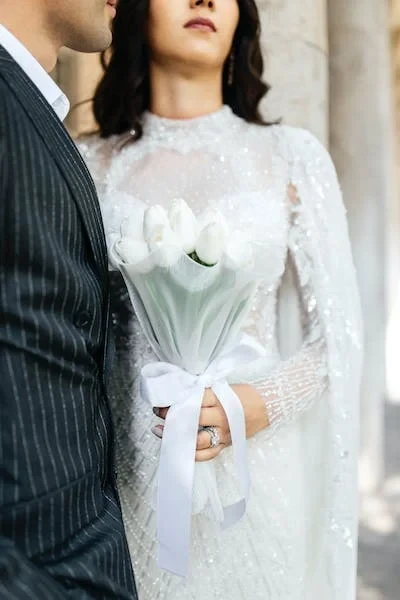
Introduction to Misyar Marriage in Shia Islam
Introduction to Misyar Marriage in Shia Islam
Misyar marriage is a novel idea in the wide realm of Islamic marriage customs, particularly among the Shia Islamic community. The purpose of this essay is to examine the history, relevance, and current debates surrounding the Shia Islamic concept of misyar marriage.
Comprehending the Definition and History of Misyar Marriage
Although it is mainly associated with Sunni Islam, some Shia Muslims also observe misyar marriage, albeit according to different interpretations.
Given that the word "Misyar" itself means "visitor" or "temporary," this marriage contract is characterized by flexibility. It permits a couple to live apart, with the wife keeping her right to conjugal relations and maintenance but giving up some marital rights, like joint habitation and financial support.
It is thought that the custom of Misyar marriage first emerged as a response to certain social and financial difficulties that certain Muslims encountered. For some who might not be able to commit to a conventional, full-time marriage, it offers an alternative.
Distinctions from Customary Matrimony
Misyar weddings are distinct from traditional marriages in a number of important ways. In contrast to traditional marriages, which call for cohabitation and for the husband to provide his wife with a home, Misyar marriages frequently entail separate residences. Misyar marriages tend to have fewer financial obligations, such as housing, which makes them a more affordable choice for people who cannot afford a regular setup.
Motives for Selecting a Misyar Marriage
1. Stability of finances
A misyar marriage is a desirable alternative for people who wish to keep their financial independence. It is appropriate for people who value financial independence because it permits each spouse to have their own financial responsibilities. Misyar marriage has benefits, but it's not without controversy. Some contend that it threatens the institution of marriage and opens doors for exploitation, especially with regard to women.
Critics assert that because a wife gives up some of her rights, it may result in her disregarding her emotional and material needs. This has sparked worries about the possibility of unequal power dynamics and the possibility that women will be viewed as secondary spouses in these kinds of marriages.
Opponents further contend that misyar marriages can be exploited as a means of avoiding traditional marriage's obligations, which include giving the woman a secure house and a stable income. It has also drawn criticism for making it simpler for males to participate in polygamous relationships without having to uphold the moral and legal requirements of having several wives.
Concerns over the Misyar marriage's social effects and compatibility with the larger objectives of social cohesiveness and family stability are also at the heart of the dispute surrounding it. Discussions concerning the compatibility of these kinds of relationships with Islamic teachings and marriage ethics in general have erupted among Muslim communities.
2. Seclusion and Self-Growth
Traditional weddings might not provide the same degree of privacy and autonomy as misyar marriages. People who respect their privacy and autonomy could find this partnership more desirable.
Short-Term Devotion
Marriages between misyars might be viewed as a transient type of commitment. They let a couple explore a partnership without the long-term obligations connected to conventional marriages.
Disputations Regarding Misyar's Marriage
Misyar marriage has benefits, but it's not without controversy. Some contend that it threatens the institution of marriage and opens doors for exploitation, especially with regard to women. Critics assert that because a wife gives up some of her rights, it may result in her disregarding her emotional and material needs.
In Summary
In Shia Islam, misyar marriage is a novel idea that offers an alternative to conventional marriage. It gives people financial freedom and personal autonomy, but it also raises questions about how marriage rights are being neglected. Anyone trying to understand the difficulties of marriage in the Shia Islamic tradition must understand the rationale behind this practice.
Frequently Asked Questions
1. Can only Shia Muslims get married in a misyar marriage?
No, misyar marriage is mainly connected to Sunni Islam, while some Shia Muslims also observe it, albeit with different interpretations.
2. Can a Misyar marriage eventually turn into a regular marriage?
Yes, if a couple chooses to live together and share more marital obligations, they may decide to convert from a Misyar marriage to a standard marriage.
3. Are traditional marriages and misyar marriages different legally?
For detailed information, it is imperative to refer to local laws and regulations as legal variations vary by country and region.
4. Are there any particular standards or prerequisites for getting married in Misyar?
Misyar weddings can have a variety of prerequisites and conditions, but they usually include the presence of a marriage contract and the mutual permission of both partners.
5. What is the procedure for ending a Misyar marriage?
A Misyar marriage is normally dissolved by a court process akin to a divorce, with applicable laws and processes varying according to the jurisdiction.